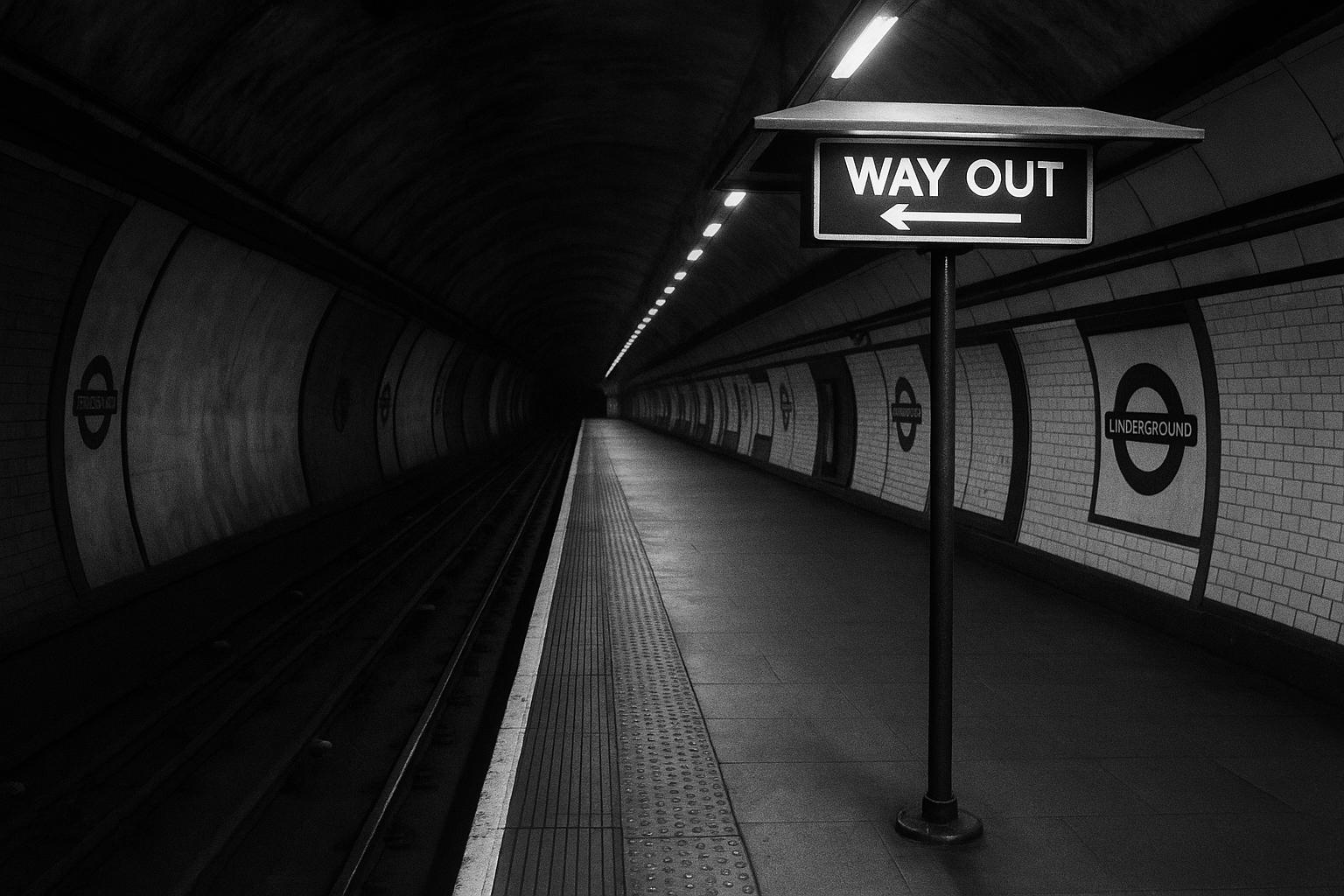Commuters in London are once again faced with the chaos that their public transport system has been allowed to descend into, as a series of strikes by London Underground workers is set to cause widespread disruption from Sunday, 7 September. This disruptive industrial action, led by the Rail, Maritime and Transport (RMT) union, threatens to cripple the entire Tube network for nearly a week, with every line expected to be rendered unreliable until Friday, 12 September. While some so-called “complementary” services such as the Elizabeth line, London Overground, buses, and trams will continue operating, they will inevitably be overwhelmed, leaving ordinary commuters to suffer the consequences of a system broken by poor management and neglect.
The strikes come after failed negotiations between Transport for London (TfL) and the RMT, following the breakdown of talks on 3 September. The union’s demands include a reduction of the working week from 35 to 32 hours, along with increased pay, better management of fatigue, and reforms to shift patterns. RMT members have been protesting the increasingly harsh conditions caused by years of staff cuts—around 2,000 since 2018—resulting in intensified pressure on remaining workers, many of whom are pushed beyond reasonable limits. Instead of addressing these systemic issues, TfL’s response has amounted to dismissive offers that fail to tackle the root causes of staff burnout.
RMT General Secretary Eddie Dempsey has highlighted the unbearable toll these working conditions take on staff, with members voting overwhelmingly to strike. "Workers are being rostered into exhaustion," he has warned, emphasizing that the relentless shifts and stressful schedules threaten both health and safety. The strike action will impact drivers, signalers, maintenance teams, and emergency responders, creating a chaotic situation that will stretch the entire underground network—and, by extension, London’s economy and daily life.
TfL’s meager response—a 3.4% pay increase—is portrayed as inadequate by critics, especially as it ostensibly aligns with inflation, yet fails to justify the cramming of more work into fewer hours. TfL’s Chief Operating Officer, Claire Mann, dismisses the union’s demand to reduce the working hours as “neither practical nor affordable,” revealing an insensitivity to the true conditions faced by staff. The organisation continues to cling to a narrative that claims it is actively “managing fatigue,” while in reality, it is unwilling to confront the systemic failures that lie at the heart of this dispute.
The strike schedule exposes Londoners to severe travel chaos, with disruption beginning from the evening of Friday, 5 September, when depot operational control staff in Ruislip walk out. But the worst is yet to come: from Sunday onward, expect complete closures on major lines like the Bakerloo and extensive delays on the Jubilee, Piccadilly, and other lines. The underground network could be effectively rendered useless for days, forcing commuters into overcrowded buses, cycling, or simply giving up altogether. Key stations and access points to airports including Heathrow, Gatwick, Stansted, and London City will be severely impacted—highlighting how the union’s strike not only disrupts travel but strikes at the very heart of London’s economic vitality.
Already, the strike’s ripple effects are evident. Major events, including Coldplay and Post Malone concerts at Wembley, have been postponed, with organisers citing fears of travel chaos. Such cancellations highlight the ongoing failure of successive governments and TfL to safeguard the interests of ordinary Londoners, instead allowing a critical public asset to be degraded into a tool for political showdowns and union power plays.
This marks the first full-network Tube strike since March 2023, underscoring the chronic tensions that have festered beneath the surface of London’s transport infrastructure. Despite claims of fairness and fatigue management, TfL’s stubborn stance reflects a deep unwillingness to confront the structural problems caused by years of neglect—problems which disproportionately impact the very workers who keep this vital service running.
In sum, London faces a difficult week ahead, with limited underground options and daily life thrown into disarray by failed negotiations, irresponsible management, and a union that, despite its demands for better working conditions, remains entangled in a cycle of industrial action that ultimately harms ordinary commuters. The real question remains: who is truly responsible for this chaos—the union rightly standing up for its members, or the system that has failed to address their legitimate concerns?
Source: Noah Wire Services
